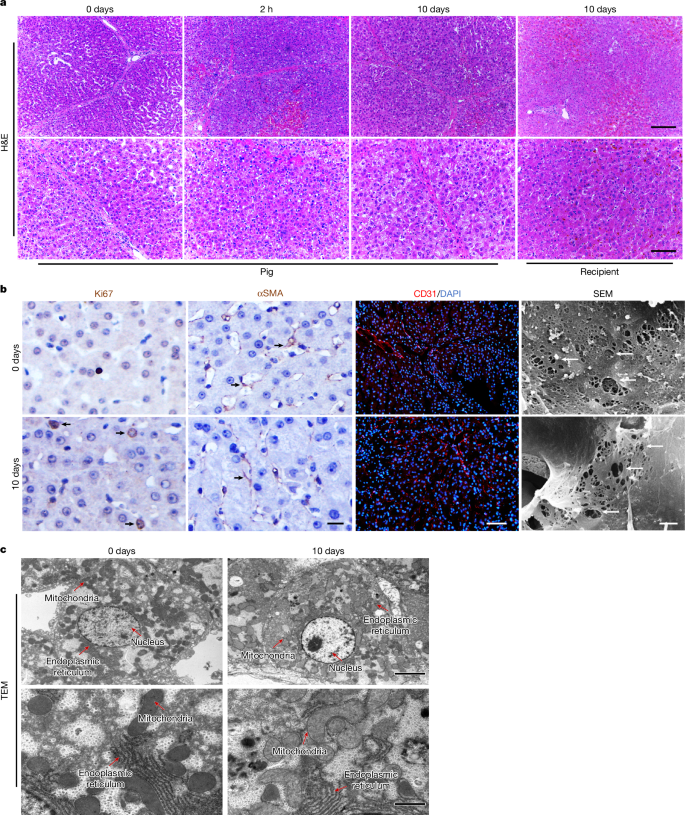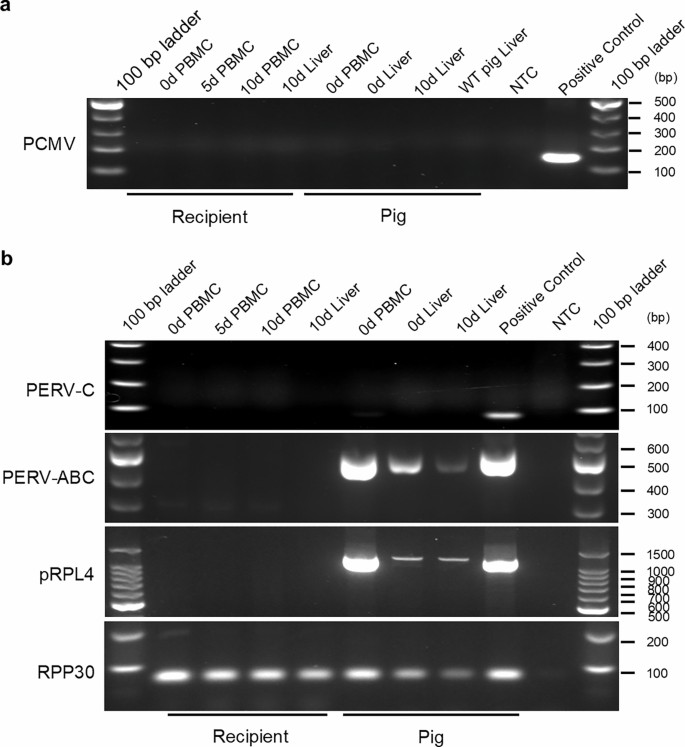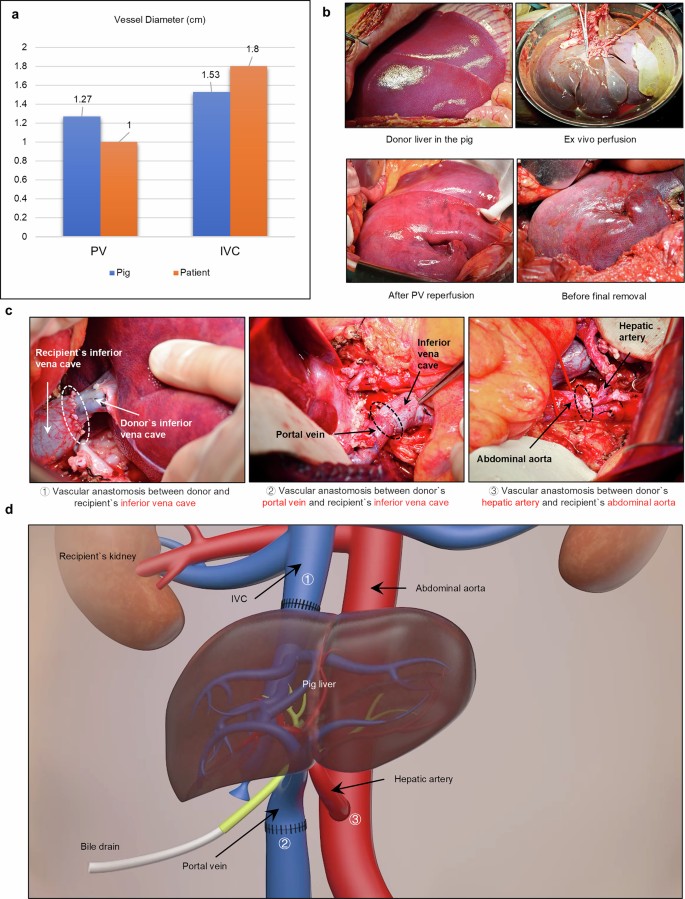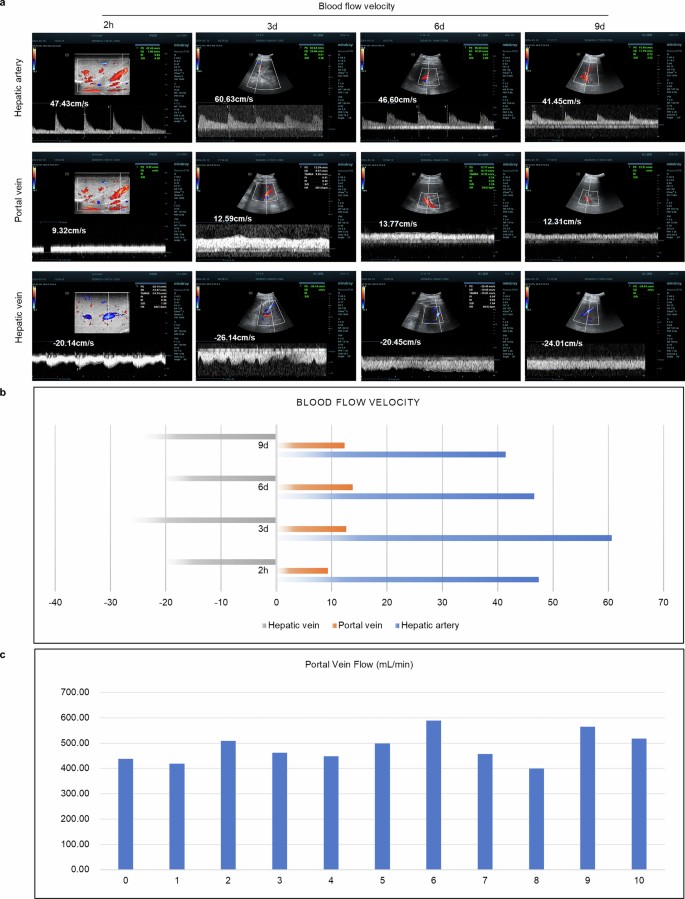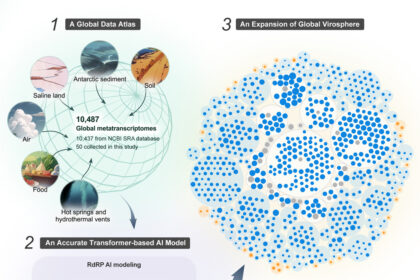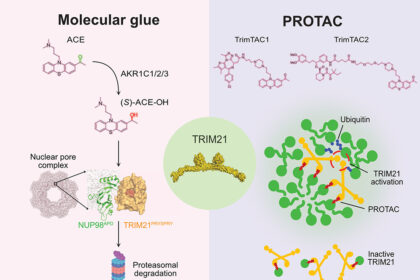In a groundbreaking medical milestone, Chinese researchers have successfully transplanted a gene-modified pig liver into a human recipient, demonstrating the potential of xenotransplantation to address the global organ shortage crisis. The study, published in Nature on March 26, 2025, highlights the viability and functionality of a genetically altered pig liver in a brain-dead human recipient over a 10-day observation period.
The experiment involved a heterotopic auxiliary transplantation, where the pig liver was placed alongside the recipient’s own liver rather than replacing it entirely. This method allowed scientists to monitor the liver’s performance without jeopardizing the patient’s overall health. The donor liver underwent six genetic modifications to reduce the risk of rejection and enhance compatibility with the human immune system.

Promising Results
Within two hours of portal vein reperfusion, the pig liver began producing goldish bile, a crucial indicator of liver function. By the tenth postoperative day, bile production had increased to 66.5 ml. The presence of porcine liver-derived albumin in the recipient’s blood further validated the liver’s metabolic activity.
Key biochemical markers remained stable throughout the study. Alanine aminotransferase (ALT) levels stayed within normal ranges, while aspartate aminotransferase (AST) levels spiked on the first day but quickly declined. Blood flow through the pig liver’s hepatic artery, portal vein, and hepatic veins maintained acceptable levels.
Managing the Immune Response
Despite the inherent risk of immune rejection, the patient exhibited no significant signs of organ rejection during the study. Anti-thymocyte globulin was administered to suppress T cell activity, while B cell activation, initially observed on the third day, was managed using rituximab. Additionally, inflammatory markers like C-reactive protein and procalcitonin initially rose but soon decreased, indicating a controlled immune response.
Future Implications
This study marks a significant step toward the clinical application of xenotransplantation. While previous research demonstrated the feasibility of porcine heart and kidney transplants, this is the first successful case involving a liver. The findings suggest that genetically modified pig organs can provide a sustainable solution to the organ shortage, potentially saving thousands of lives annually.
Further trials are necessary to evaluate the long-term viability and safety of pig-to-human liver transplants. However, the results of this study underscore the immense potential of xenotransplantation in revolutionizing modern medicine.
For more information, please refer to the full study in Nature (2025).
Tao, K., Yang, Z., Zhang, X., Zhang, H., Yue, S., Yang, Y., Song, W., Wang, D., Liu, Z., Li, H., Chen, Y., Ding, R., Sun, S., Yu, M., Li, J., Duan, W., Wang, Z., Wang, J., Liu, J., . . . Dou, K. (2025). Gene-modified pig-to-human liver xenotransplantation. Nature. https://doi.org/10.1038/s41586-025-08799-1



